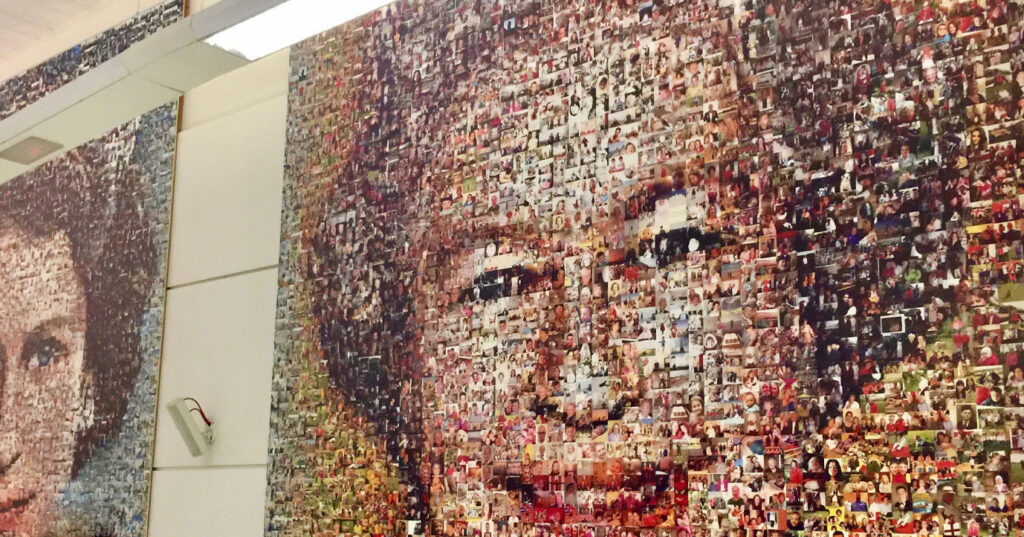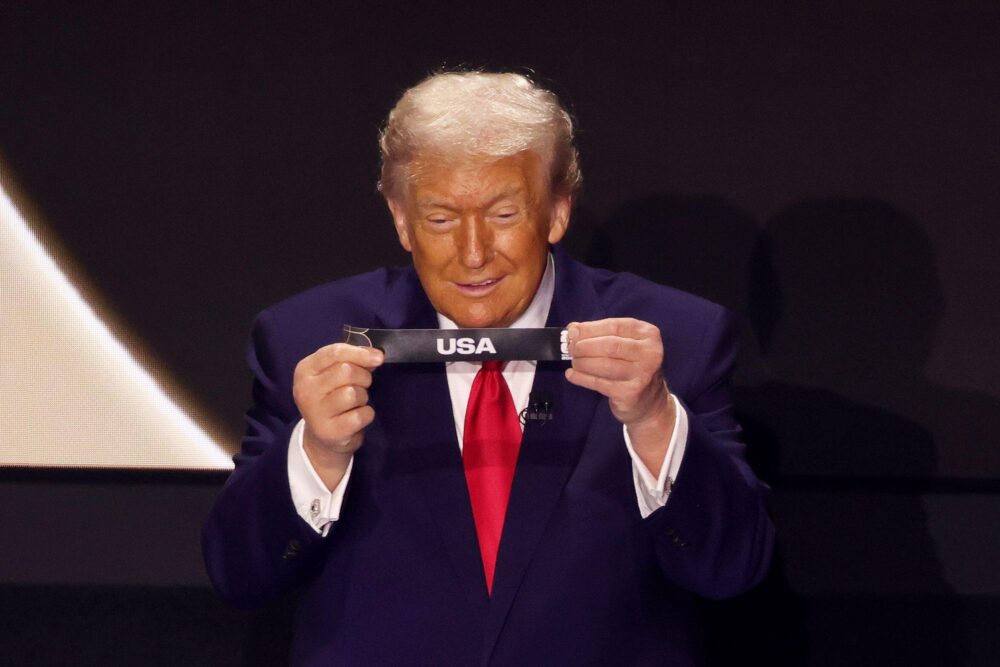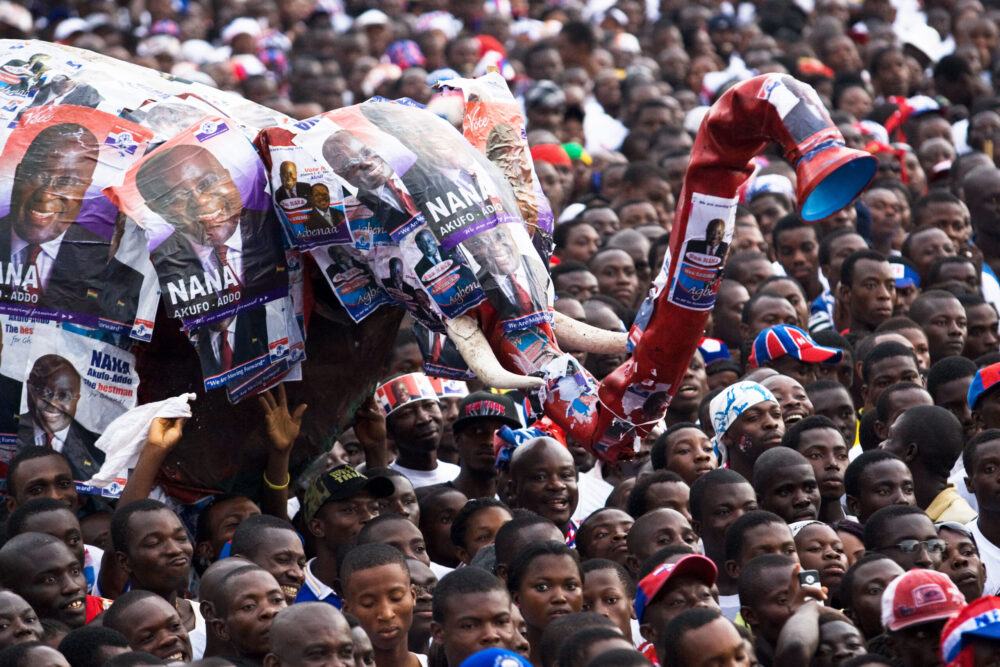
The final edition of the Ashcroft In America podcast is here
Presidential candidates live in terror of the October Surprise – the out-of-the-blue event that can turn the race upside down. Last Friday it seemed that one had arrived when the FBI Director, James Comey, wrote to Congress disclosing that the Bureau had learned about further emails that “appear to be pertinent” to their earlier investigation of Hillary Clinton. The announcement caused a huge row in Washington, with Democrats complaining that Comey had politicised the investigation and Trump seizing on the news as further evidence of Hillary’s crookedness. What effect would this momentous development have on undecided voters in the final week of the campaign?
A pretty negligible one, to judge by our focus groups in Cincinnati. The email story was “nothing new;” “I don’t believe that anyone who thinks she’s the better of two evils has changed their mind. It isn’t a big enough issue;” “Had she done nothing at all in the past thirty years and this hit, then I would say ‘oh my gosh, this is humungous’. But it’s just the continued pattern of what she’s done basically all of her adult life;” “You kind of shrug your shoulders, like, ‘well?’” Given what everyone already knew about both candidates, “one more thing to add on the pile is like, ‘well?’”
Smack
The choice for our undecided voters, then, was no easier than it had been last week. “One you don’t trust and one, for lack of a better term, seems like a bumbling idiot.” Watching Trump and Clinton is “almost like I’m watching reality TV… When I see their commercials, I’m like ‘do I have to vote? Do I have to?’”
At the outset, some felt, Trump was “just after the camera time”. Then after a while, “the Trump camp said, ‘wait a minute, these people are actually taking us seriously’. So then he was too deep into it to back out. He said, ‘ I can’t believe it but they’re actually buying this crap’.”
His brash approach was a very mixed blessing. “I would love to work for somebody like that. But I don’t know that I want him going into diplomatic relations.” After all, “do we want him smacking the Queen of England’s butt during a meeting?”
The other risk of a Trump presidency was “divisiveness”, aggravated by the way he talked about women and immigrants. “I have a great community and they’ve never had to worry about stuff like this. But now, kids are going to school and they’re repeating some of the things they’re hearing.” For some, his character was a disqualification. “If I wouldn’t want my daughter to marry someone like that, or to look up to someone like that, or my son, then I don’t want to vote them into the presidency”.
OK, how would you feel if Hillary were to win? “Disgusted,” “nauseous,” “terrified,” “disappointed,” “need to pray.” Any particular reasons? “I believe she is a murderer and she is a criminal.” OK, and apart from that? “We may even become bankrupt as a country.”
However unpalatable they found the choices, most in the groups said they wanted to vote, and did not want to waste their ballot on a third party. Those who were leaning towards Clinton usually cited her experience and said she was the safer pair of hands: “You have to pick the person that at least knows something about the country. If I have to pick – and I still haven’t – if I pick Hillary it’s going to be because she’s been in politics for thirty years and Donald Trump don’t know nothing about the politics of America.”
For those who were edging towards Trump, he was the only candidate who offered any hope of change. “We know we’re not going to get any change with Hillary… A lot of people feel like, let’s roll the dice, and we’re going to have to put up with a whole bunch of bad stuff, but maybe we’ll get some things done with Trump.”
Mother of Presidents
Ohio has voted for the winning candidate in every presidential election since 1964. No Republican has ever won the White House without it, and state is central to the Midwestern strategy that the Trump campaign hopes will lead him to victory.
Even before the polls started to tighten going into the final week of the campaign, Trump had been leading in the state they call the Mother Of Presidents. “Demographically, Ohio fits the mould Donald Trump is going after. The state is whiter and less educated than some of these other battleground states,” explains Henry Gomez of the Cleveland Plain Dealer, the state’s biggest newspaper, and his message on the iniquities of NAFTA and other free trade deals has appealed to them.
But for Gomez, the polls may not tell the full story. “Early voting has been underway here for several weeks. It’s a very robust early voting programme and Hillary Clinton has strong organisation in the state. As early as June the Democrats had over 150 staffers on the ground and they were all working in perfect harmony with the Clinton campaign. And conversely the Trump campaign has had a rocky relationship with the Republican establishment in Ohio.”
That is one way of putting it. John Kasich, the state’s popular Republican Governor who was a candidate in the primaries, has not endorsed Trump, refused to attend the party’s convention in his home state and has said it is unlikely he will even vote for the nominee. “He controls the vast republican machinery in the state. And those foot soldiers weren’t eager to go and work for Donald Trump.” Clinton, then, is in a better position to work out which voters have already returned ballots or need a nudge to do so, “and all those things are going to be important in the final days of this campaign.”
The Governor’s own national ambitions are by no means at an end. Any moves against him by Tea Party elements have always failed, and “that’s a testament to the strength and respect that Kasich commands in the state.” Since his primary defeat he has continued to present himself as a different kind of Republican, a message which would be the basis for a 2020 presidential bid. “We saw Kasich go to the White House about a month ago to speak to President Obama on the Trans-Pacific Partnership, basically endorse it, encourage Congress to pass it. That’s a position that’s anathema to a lot of these Trump Republicans who are opposed to free-trade deals, but it was Kasich sticking to his ‘I’m a guy who can work with the other party’, and I think it will be interesting to see, as Governor of Ohio, what type of olive branch, what type of helping hand does he extend to President Hillary Clinton, if she wins.”
Sleepless nights
Howard Dean, former Governor of Vermont and 2004 Democratic presidential candidate, thinks Hillary will indeed win, but told me last Friday that he was “also prepared for a few sleepless nights out of the next eleven.”
Governor Dean caused a stir by speculating that Trump’s pronounced and repeated sniffing during the first presidential debate might have been caused by a white powder-based stimulant. It hadn’t been a serious accusation, but “a calculated tactical move on my part. I think the press in this country gave Donald Trump a free ride, and I think they did it to make money. He was given privileges that have never been afforded to any candidate of the United States, calling in when he’s in his pyjamas in his hotel suite to the most prestigious talk shows in the country. Donald Trump has used innuendo with no evidence whatsoever for fifteen months, and the purpose of what I said was to do exactly what happened, which was that the media tied their britches in a knot and criticised me. I was waiting for that, was hoping for that, and fortunately was able to have some interviews where I pointed out that their own behaviour for fifteen months was no different than mine.
Did all the excitement make him long for the days of running for president himself? “Let’s put it this way. In January I was asked by Hillary’s people to do what they call the coast-to-coast tour of Iowa, which since it’s in the middle of the country is actually from the Missouri River to the Mississippi. It’s fourteen stops, it’s a thousand miles, and it was thirty-six hours. And I got up the next morning and I went ‘boy, that was really great, and I am really glad I don’t have to do it again’.”
Bonds of affection
Steve Schmidt worked in the George W. Bush White House and ran day-to-day operations on John McCain’s presidential campaign in 2008 (if you’ve seen the film Game Change, Schmidt is the character played by Woody Harrelson). He lamented to me what had become of the Republican Party. In the 1980s the GOP was acknowledged as “the party where all the ideas were,” but now the connection between conservatism and real issues had been severed. “The test of who is a conservative is now ‘who has the most incendiary or hottest rhetoric towards President Obama and the Democrats” and “who has fidelity to the craziest statements made on any given day. So a serious governing philosophy has been reduced to an emotional primal scream.”
As for Trump, he says, “neither political party has ever nominated a candidate who was so manifestly unprepared for the office, and there will be a consequence to that.” This could be far-reaching. “I’m not sure the Republican Party survives this as we recognise it today”. One outcome could be “some version of Trump TV, as he has a very significant market share, certainly enough to monetise a multi-billion dollar media company”. More widely, “I’m not sure the two party system in America as we’ve known it survives into the next decade. I think you’ll see a legitimate third-party candidacy four years from now, someone who’s running in a right-of-centre space, and I think you will see a factionalisation of the Democratic Party as well.”
Meanwhile, it looked as though the next president (Hillary Clinton, he, too, expects) will have a hard time getting anything done. American presidents had defied expectations and risen to greatness before, but the “bonds of affection” extolled by Lincoln had become frayed. “Will she be able to reach out and to heal that by practising one of the most important qualities of politics, which is restraint at your moment of maximum political power – and in good faith, with an open hand, go to the opposition and say ‘let us do the work of the American people at long last’? And that question we will soon know the answer to.”


